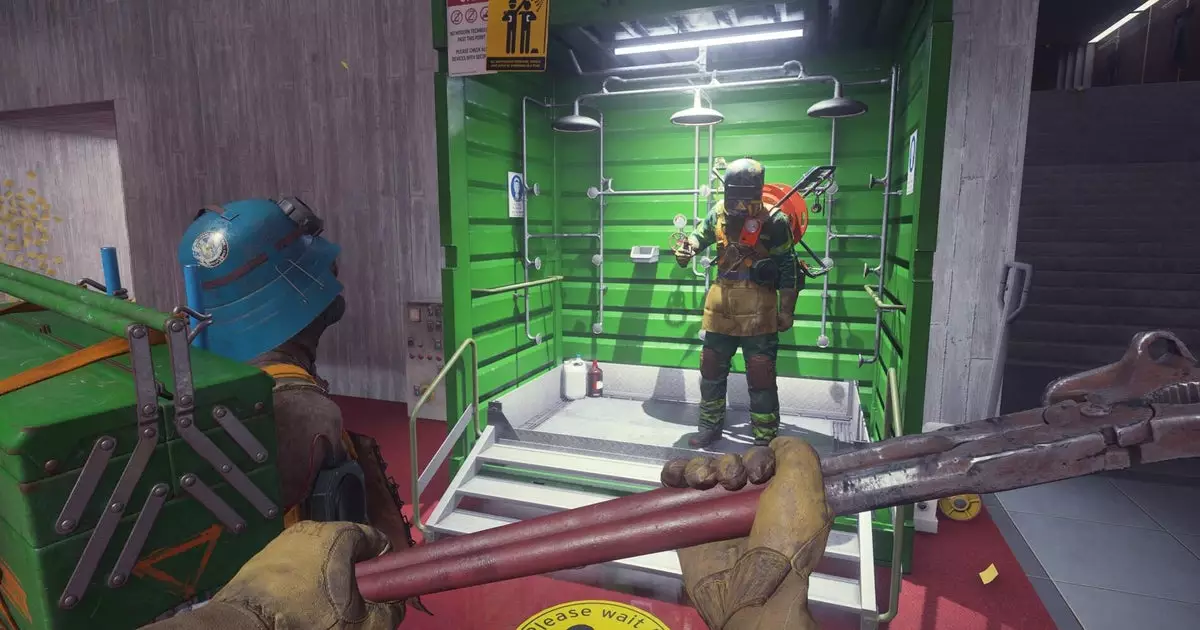The gaming landscape is ever-evolving, with developers continuously experimenting with new genres and gameplay mechanics. Recently, Remedy Entertainment, known for its narrative-driven games like Alan Wake and Control, has announced a significant pivot with their first foray into multiplayer gaming. Set in the rich world of Control, FBC: Firebreak is a three-player cooperative shooter promising thrilling gameplay elements and an intriguing blend of action and narrative—a new direction that raises questions about the developer’s ability to balance both engagement and depth.
FBC: Firebreak invites players into the chaotic realm of the Federal Bureau of Control, where they assume the roles of first responders fighting against extra-dimensional threats. This move towards co-op gameplay is a substantial shift for Remedy, who are better known for single-player experiences that weave intricate storylines. Players can look forward to utilizing Overwatch-style “ultimates” that function as Altered World objects—pieces with supernatural properties, promising to inject excitement and unpredictability into the gameplay. Remedy’s communications director, Thomas Puha, emphasized the importance of strategic use of these capabilities, comparing them to “a jaguar in a box,” which intriguingly evokes both potential danger and a sense of adventure.
This approach to gameplay encourages a depth of strategy, offering gamers both thrills and challenges. However, as we analyze the implications of such a system, one must question whether this will grip players sufficiently, given that the studio historically favors narrative over multiplayer mechanics. The fear remains that the careful balance Remedy aims to achieve could easily tip, leading to a game that sacrifices storytelling depth in favor of frenetic action.
One of the standout components of Firebreak is its intention to maintain a narrative thread while shifting away from traditional story-driven gameplay. Game director Mike Kayatta acknowledges that while the game’s setting remains within the famed Control universe, the storytelling approach must evolve. This decision could prove to be a double-edged sword.
On one hand, the chance to explore the universe from a multiplayer perspective allows players to engage with beloved characters and locations in exciting new ways. On the other hand, dispensing with the characteristic story depth that usually captivates fans might alienate those who cherish Remedy’s narrative finesse. The call for a “stand-alone experience” aimed at creating a distinct gameplay culture raises the all-important question of how far the narrative can be stretched without losing its essence.
An intriguing aspect of Firebreak is its commitment to accessibility and ease of entry. Puha notes the desire to avoid transforming the experience into a “second job,” allowing players to dive straight into the action without cumbersome loadout preparations. This philosophy challenges the commonly accepted notion prevalent in many modern multiplayer titles, which often burden players with complex systems that demand constant engagement.
This focus on immediacy and fun signifies a conscious effort by Remedy to draw in casual gamers who might be hesitant to engage in deep, lore-heavy games, yet seek the thrill of cooperative play. By promising a lighter, “pick-up-and-play” atmosphere, Firebreak could democratize access to the unique narratives Remedy is known for while offering lucrative prospects for player growth and development.
As gamers await the release of FBC: Firebreak, cautious optimism seems to be the prevailing sentiment. The game’s premise holds promise, blending horror and absurdity reminiscent of its predecessors while crafting a novel space for cooperative multiplayer interaction. However, the transition into this new arena begs the question: Can Remedy maintain its storytelling integrity within such dynamics?
In an industry often defined by loot boxes and monotonous grind, the challenge lies ahead. Will Remedy be able to expand upon its successful storytelling while integrating enjoyable multiplayer mechanics without sacrificing its identity? Ultimately, Firebreak stands at the crossroads of innovation and tradition, and only time will tell if this bold step redefines the studio’s legacy or sends it tumbling down a more conventional game development path. Keeping the game’s spirit alive—while navigating these diverse gameplay elements—could be the key to a groundbreaking new chapter in the Remedy saga.


Leave a Reply